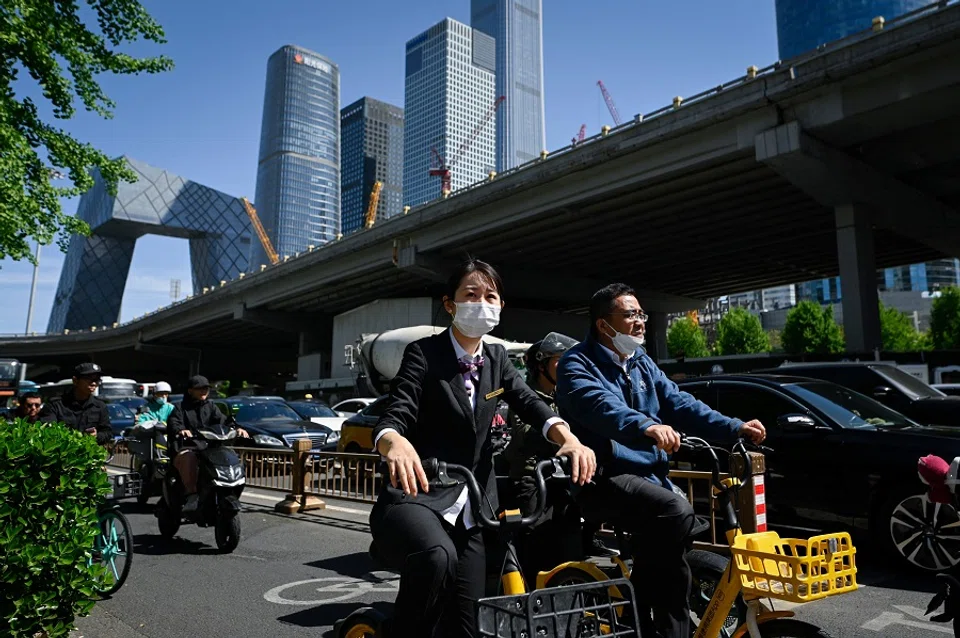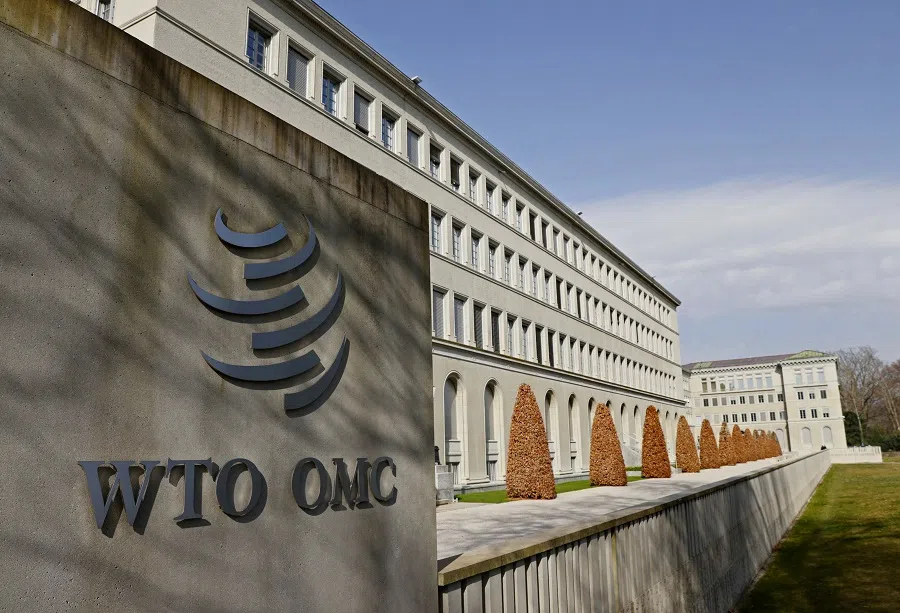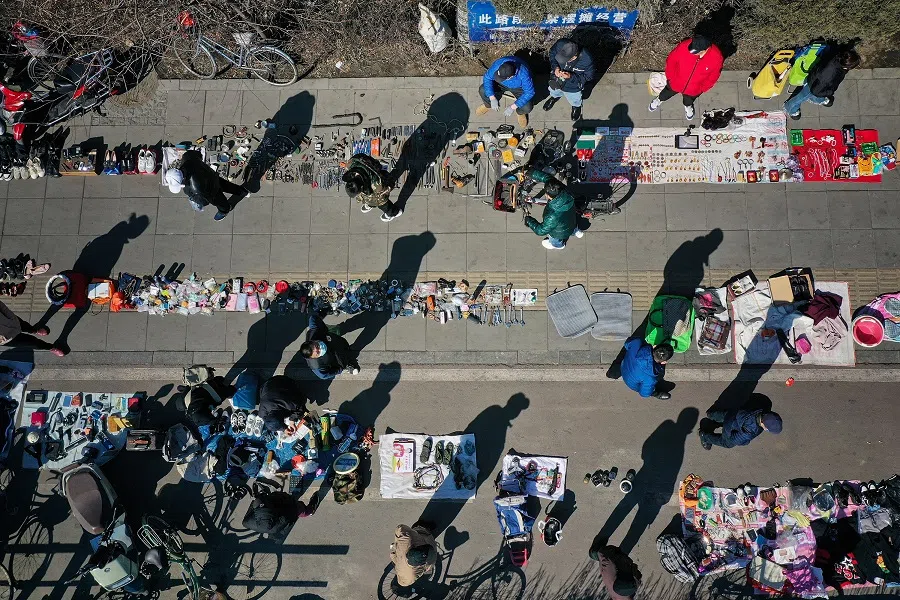Deteriorating legal order: US-China rivalry and the challenge to WTO rules
Academic Wang Jiangyu opines that the World Trade Organization (WTO)'s power has been declining, given that its appellate body's ability to hear the disputes brought forward by member states has been at a standstill since 2019. So what does it mean for China to initiate dispute settlement proceedings against the US through the WTO?

On 26 March, China initiated dispute settlement proceedings (DS623) against the US at the World Trade Organization (WTO) over US subsidies for electric vehicles, and requested consultations with the US. Under WTO dispute settlement procedures, this is the first step towards litigation.
Not the first time
The Chinese side asserted that the US's Inflation Reduction Act of 2022, enacted in the name of tackling climate change and reducing carbon emission, established discriminatory subsidies on new energy vehicles (NEVs) and excludes Chinese goods, on the premise of subsidising the purchase and use of goods from the US or imported from certain regions.
The Chinese side stressed that the policies have "distorted fair competition", "seriously disrupted the global industrial and supply chains of new energy vehicles", and "violated WTO rules such as national treatment and most-favoured-nation treatment, which China firmly opposes".
China's allegations are completely sound from a legal perspective - the US's preferential subsidies violated a cornerstone principle of the WTO: non-discrimination. It requires WTO members to accord to the products, services and suppliers of any other WTO member treatment "no less favourable" than they give to their domestic products, services and suppliers. The US has unequivocally discriminated against Chinese products in this case and also made no secret in relevant official documents that the bill is targeted at China. In this sense, China would not have any problem winning the case legally.
... it is obvious that British and American elites considered the issue with a strong mentality of retaliation and gloating, utterly disregarding the regulations.

This is not the first time China has confronted the US on trade disputes. After the China-US trade war broke out, in 2018 China requested dispute consultations under the WTO's dispute settlement mechanism (DS543) over the Donald Trump administration's punitive tariffs on Chinese products. A WTO panel granted China a full win in the panel report and ruled that the US had violated the "most favoured nation" and "agreed bound tariff rate" principles under the General Agreement on Tariffs and Trade.
Appropriate move or not?
A more noteworthy aspect of this case is the reaction it triggered among intellectuals in the UK and the US. Judged on its own merits, it is not difficult to admit that the relevant US measures have violated WTO regulations. But it is obvious that British and American elites considered the issue with a strong mentality of retaliation and gloating, utterly disregarding the regulations.
The New York Times columnist and Nobel laureate in economics Paul Krugman opined in an article that the tough stance that Biden's discriminatory subsidies have asserted "seems to make China's leaders angry", but it "suggests that Biden's approach is working".
Krugman explained, "America's new industrial policy does favour domestic production and... might be in violation of WTO rules" - but this is not the problem. He further asserted, "But for China, of all countries, to complain about targeted subsidies is an act of colossal chutzpah." In other words, it is unimportant whether the US's subsidies have violated WTO regulations - the point is that China does not have the right to complain but should let the US's illegal measures run rampant.
... since the Trump era, any time the US is unhappy with the decision over a case, it would seek to cripple the WTO's appellate body by interfering with the appointment of new judges.

By the same logic, commentator Rana Foroohor also wrote an article carried by the Financial Times that likewise strongly criticised China's complaint about the US as "hypocrisy", with the reason being that China's economy is built on plans that lay out subsidies and protectionist ringfencing for the most strategic industries; thus China has no right to seek legal redress for the US's trade protectionist measures.
The WTO's dispute settlement system is available to all member countries. If the US feels that China's measures have violated WTO laws, they are free to initiate litigation proceedings against China through the organisation. After all, the current WTO regulations and the dispute settlement processes have sufficient mechanisms and resources to consider China's subsidy issues.
From an international rule of law perspective, launching proceedings against China would be the most appropriate move. Unfortunately, since the Trump era, any time the US is unhappy with the decision over a case, it would seek to cripple the WTO's appellate body by interfering with the appointment of new judges.
... in the foreseeable future, a scenario where established rules are ignored and competition becomes a case of raw might against might, could become the main thrust of China-US interaction.
Weakening system
Hence, the WTO's legal body has become akin to the weakening Zhou dynasty during the Spring and Autumn period and the Warring States period - powerless when it comes to solving trade disputes between big countries.
Nonetheless, taking trade disputes to the WTO still reflects a commitment to the international economic and legal system, embodying a moral high ground aligned with the principle of "honouring the king to resist the barbarians" (尊王攘夷), as the Chinese saying goes.

It is evident that mainstream British and American elites, driven perhaps by intellectual bankruptcy, adhere to the principle of international rule of law when it serves their interests and goals in East-West competition. However, if legal avenues fail to enhance their power, they are willing to abandon them entirely and even deride such legal measures, despite these legal frameworks being established under US leadership.
The development of great power rivalry has reached a point where the level of trust and commitment to uphold international law, including international economic law, among establishment elites has plummeted to an alarming degree. This somewhat shows that in the foreseeable future, a scenario where established rules are ignored and competition becomes a case of raw might against might, could become the main thrust of China-US interaction.
This article was first published in Lianhe Zaobao as "周室衰微,实力争霸 --看中美世贸补贴争端".



![[Video] George Yeo: America’s deep pain — and why China won’t colonise](https://cassette.sphdigital.com.sg/image/thinkchina/15083e45d96c12390bdea6af2daf19fd9fcd875aa44a0f92796f34e3dad561cc)
![[Big read] When the Arctic opens, what happens to Singapore?](https://cassette.sphdigital.com.sg/image/thinkchina/da65edebca34645c711c55e83e9877109b3c53847ebb1305573974651df1d13a)
